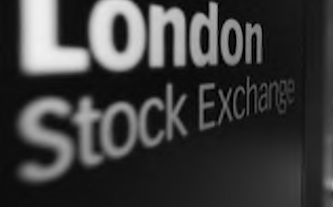The £270 million Baillie Gifford UK Growth Trust plc has reported “another period of poor portfolio performance” for the six months to October 31, 2023,
Over the six months, the investment trust’s net asset value per share total return was negative 11.9% compared to a negative 5.9% for the FTSE All-Share Index total return.
The fund’s share price total return for the same period was negative 12.5%.
“There is a pattern of short-term, cyclical concerns overshadowing what the portfolio managers view as strengthening long-term prospects of the majority of the companies held, and where operational and strategic progress remains in line or ahead of expectations,” said the fund.
There were 43 companies held in the fund’s portfolio as at October 31, 2023. The biggest holdings were Games Workshop, Auto Trader, Volution Group, Experian, Ashtead, 4imprint, Howden Joinery, Wise, Diageo and Genus.
The fund’s managers Iain McCombie and Milena Mileva wrote: “It is disappointing to report on another period of poor portfolio performance.
“The main detractors in the period were the holdings in St James’s Place, FD Technologies … and Burberry …
“Not owning either Shell or HSBC, which both performed well, also hurt.
“The portfolio’s main positive contributor to performance was the life science supplies business Abcam which agreed to a takeover.
“Other notable positives were Wise (money transfers) and 4imprint (specialist marketing services) where the continuation of stronger than expected trading at both companies was well received by the market …
“Nobody likes it when a stock you own performs poorly. Moreover, we are in the difficult part of the performance cycle when stock markets punish companies severely if they report disappointing news, as has been the case for some of the holdings.
“The difficulty is that it is not unreasonable to use the said stocks as examples of why the portfolio managers’ philosophy and process might be flawed. We understand this concern given performance, but we would strongly refute it.
“To attempt to outperform a benchmark one has to accept, whether as a portfolio manager or a shareholder, that investing carries with it risk. It’s totally reasonable to expect a portfolio manager, with a well-established investment process to carry out careful analysis of any existing or potential investment.
“Ultimately though, everyone has to accept that when we invest we are investing in future outcomes, and they are unknowable. Mistakes in investment are therefore an unfortunate fact of life for an investor in good times as well as bad.
“What we have to focus on is whether a poor share price is signalling that we have fundamentally made a mistake in an individual investment, whether it is random noise or if there is something broader going on. In regard to the latter, what we mean is something we have referenced previously, namely that our pronounced ‘growth’ style is out of favour in an environment of higher interest rates.
“We have written at length about this before and we continue to believe that it is the main factor affecting our performance. When digging into the data we can point to many companies that have had respectable, or better, operating performance that has not been reflected in their share price.
“Nevertheless, it is also true that we have seen some individual disappointments in the portfolio over the period and our actions have varied depending on the circumstances …
“It is probably natural to sound defensive or despondent following what up until now has sounded like a tale of woes.
“This is not our position though. While we are truly cognisant of the difficult time for shareholders in recent years, we hope that we tried to be both open and frank about what has happened. It is our style and we certainly do not think glib spin cuts it.
“But here is the great paradox: despite all you have read so far, both of your portfolio managers, who are shareholders themselves, are actually feeling as upbeat about the portfolio as we can remember.
“This is not bravado. Be assured that our feet are firmly on the ground, and we continue to challenge ourselves on what we are doing.
“However, we see a pattern of short-term, cyclical concerns overshadow what we view as strengthening long-term prospects of the majority of the companies held and where the operational and strategic progress remains in line or ahead of expectations.
“We view this as a real opportunity for patient investors.”
On the issues at wealth manager St James’s Place, the managers wrote: “Perhaps the trickiest assessment of a stock detractor is where there is genuine doubt in our belief.
“The shares of wealth manager St James’s Place slid following reporting of both a slowdown in new business inflows, and more importantly, a package of fee reduction changes that will eat into cash flow and profits in the short term when the changes are fully implemented in 2025.
“The main point of the changes is to lower costs for clients. The controversy for many years for the company has been whether the fees for a fully advised business model were too high. The positive case is that the company has addressed this issue without impacting its very important self-employed partner salesforce.
“Surely, management should be applauded for taking a tough decision to benefit clients. The business continues to grow successfully after all.
“The bear case is that this is only just the beginning of pressure on fees and therefore profits. The announcement of a new CEO starting imminently from outside the business (the former well regarded finance director of Prudential) comes at a critical time for the company and we will be engaging with him to understand his thoughts and plans for the future.
“In the meantime, the very low rating which discounts a very pessimistic scenario provides breathing space to take stock.”
